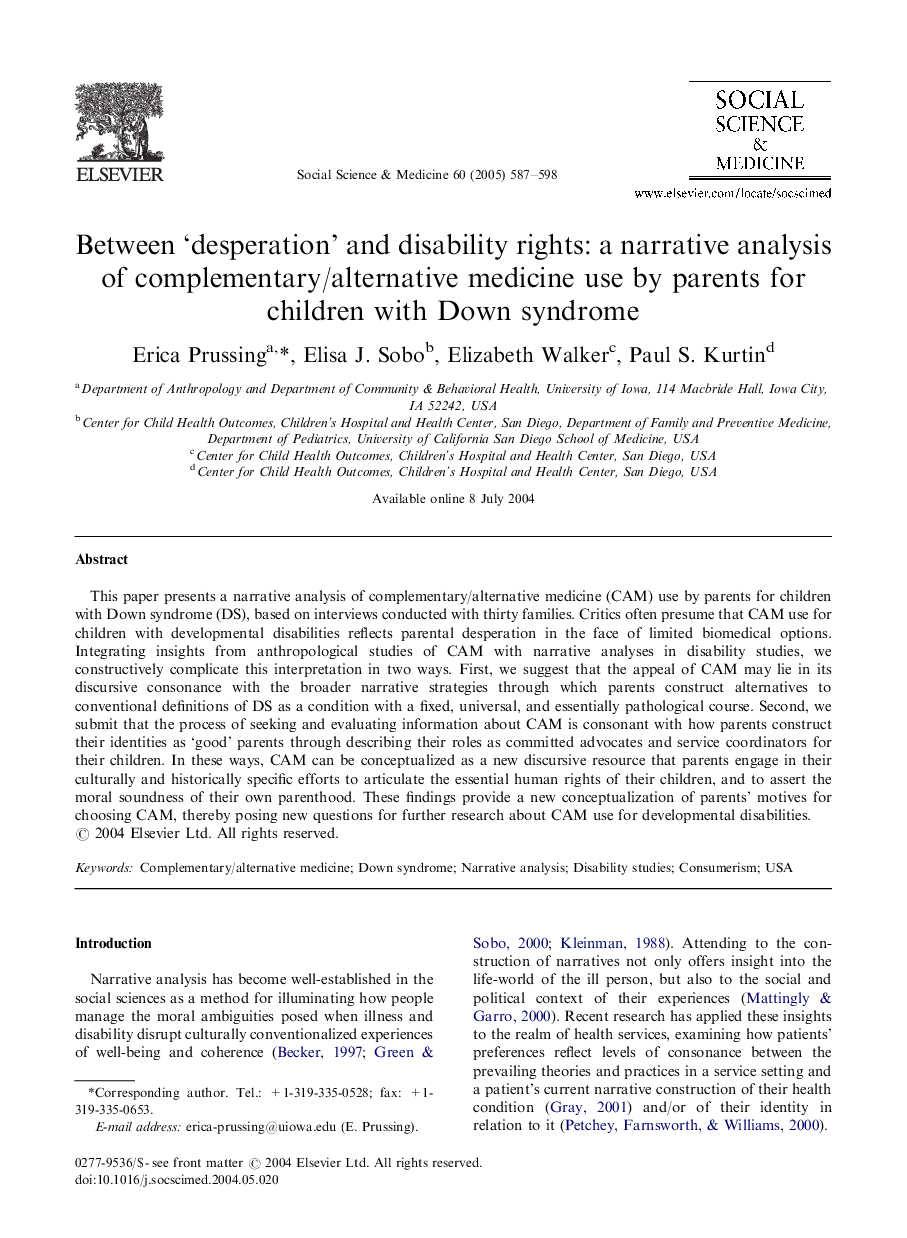| Article ID | Journal | Published Year | Pages | File Type |
|---|---|---|---|---|
| 10472380 | Social Science & Medicine | 2005 | 12 Pages |
Abstract
This paper presents a narrative analysis of complementary/alternative medicine (CAM) use by parents for children with Down syndrome (DS), based on interviews conducted with thirty families. Critics often presume that CAM use for children with developmental disabilities reflects parental desperation in the face of limited biomedical options. Integrating insights from anthropological studies of CAM with narrative analyses in disability studies, we constructively complicate this interpretation in two ways. First, we suggest that the appeal of CAM may lie in its discursive consonance with the broader narrative strategies through which parents construct alternatives to conventional definitions of DS as a condition with a fixed, universal, and essentially pathological course. Second, we submit that the process of seeking and evaluating information about CAM is consonant with how parents construct their identities as 'good' parents through describing their roles as committed advocates and service coordinators for their children. In these ways, CAM can be conceptualized as a new discursive resource that parents engage in their culturally and historically specific efforts to articulate the essential human rights of their children, and to assert the moral soundness of their own parenthood. These findings provide a new conceptualization of parents' motives for choosing CAM, thereby posing new questions for further research about CAM use for developmental disabilities.
Keywords
Related Topics
Health Sciences
Medicine and Dentistry
Public Health and Health Policy
Authors
Erica Prussing, Elisa J. Sobo, Elizabeth Walker, Paul S. Kurtin,
